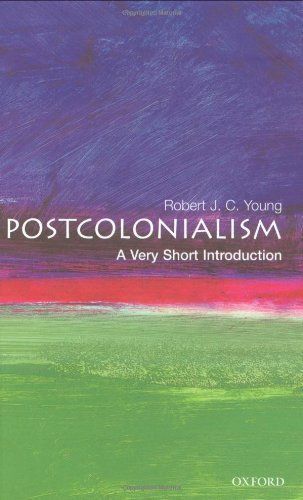
Postcolonialism A Very Short Introduction
Postcolonialism explores the political, social, and cultural effects of decolonization, continuing the anti-colonial challenge to western dominance. This account discusses its importance as an historical condition, and as a means of changing the way we think about the world.
Reviews
Arianna M@letterarii
Namera Nous@nameranous
Namera Nous@nameranous
Luca Conti@lucaconti
Sophie Shrimpton@sinta
Maria@nocturnes
Zoe Smolen@booksatlunch
Shreerag Plakazhi@shreerag
Highlights
Namera Nous@nameranous
Page 407
Namera Nous@nameranous
Page 398
Namera Nous@nameranous
Page 378
Namera Nous@nameranous
Page 370
Namera Nous@nameranous
Page 66
Namera Nous@nameranous
Page 66
Namera Nous@nameranous
Page 65
Namera Nous@nameranous
Page 58
Namera Nous@nameranous
Page 58
Namera Nous@nameranous
Page 57
Namera Nous@nameranous
Page 57
Namera Nous@nameranous
Page 56
Namera Nous@nameranous
Page 53
Namera Nous@nameranous
Page 51
Namera Nous@nameranous
Page 49
Namera Nous@nameranous
Page 49
Namera Nous@nameranous
Page 47
Namera Nous@nameranous
Page 46
Namera Nous@nameranous
Page 45
Namera Nous@nameranous
Page 45
Namera Nous@nameranous
Page 45
Namera Nous@nameranous
Page 42
Namera Nous@nameranous
Page 42
Namera Nous@nameranous
Page 31